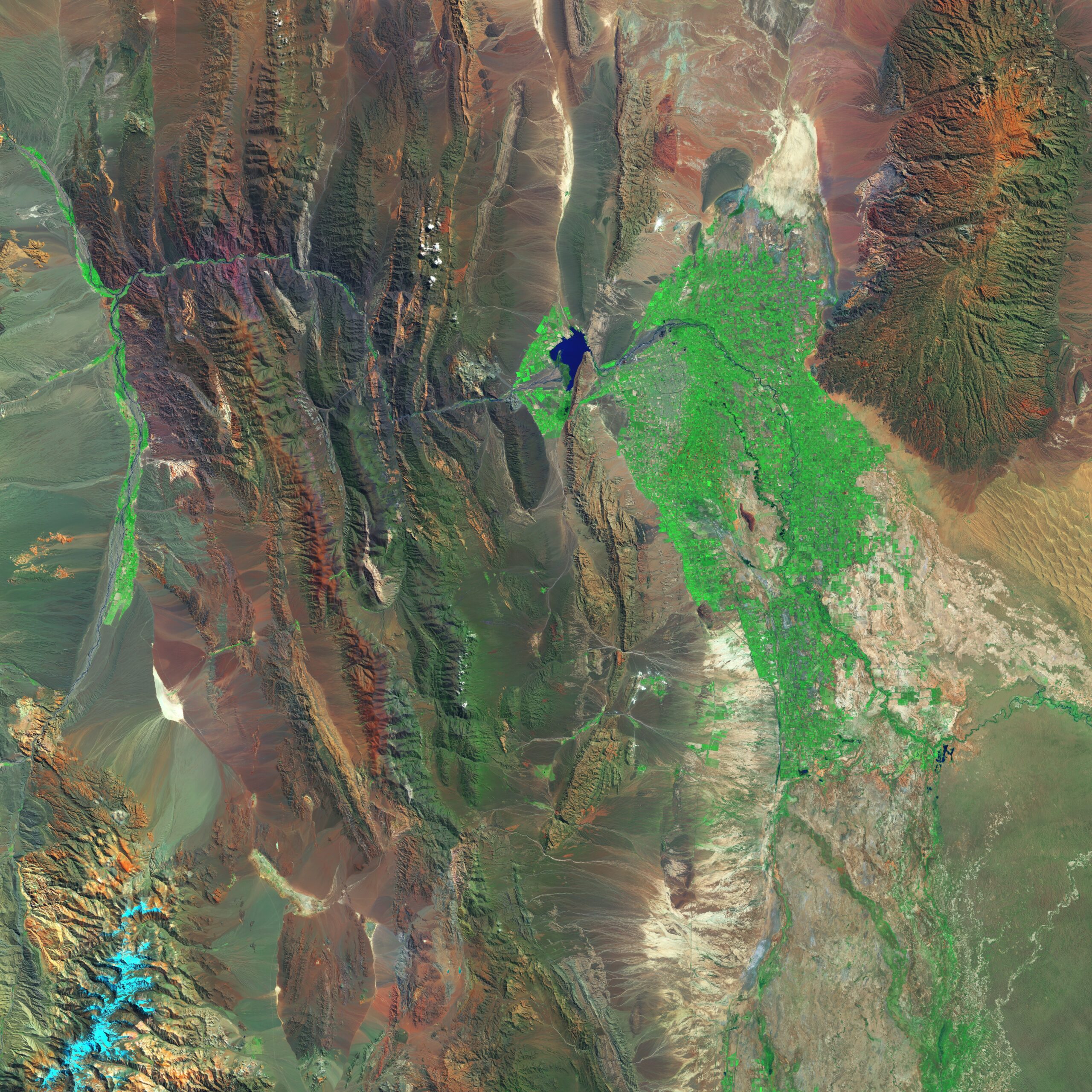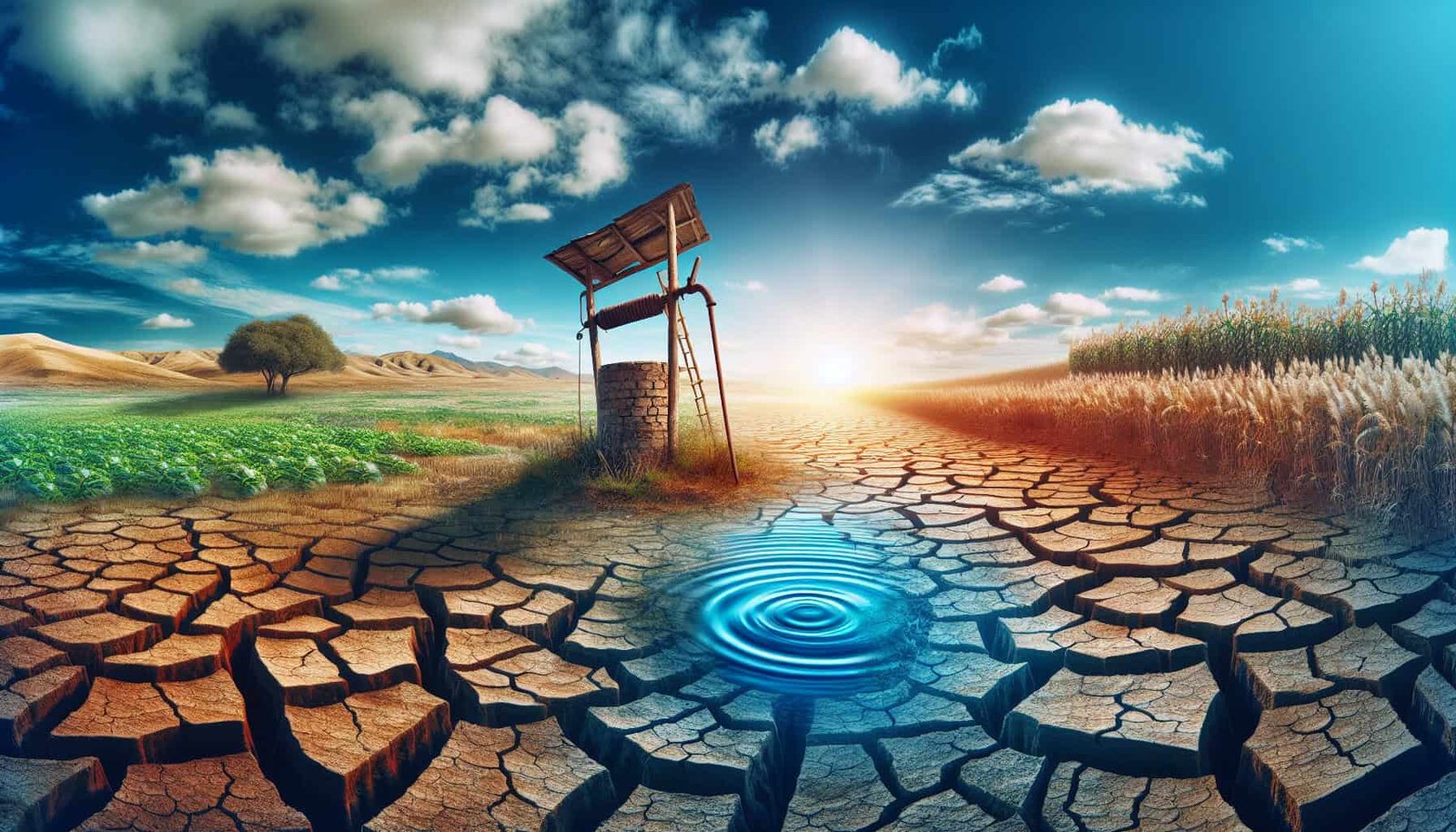In today’s rapidly changing world, it is becoming increasingly important for well owners to stay informed and equipped with the necessary resources to adapt to shifting groundwater conditions. With factors such as climate change and population growth affecting the availability and quality of groundwater, knowing how to access resources specifically tailored to your area is crucial. Fortunately, there are numerous tools and organizations dedicated to supporting well owners and providing the guidance needed to navigate these evolving conditions. In this article, we will explore the various avenues available to you, ensuring that you have the information and assistance necessary to effectively manage your well in areas with changing groundwater conditions.

Understanding Changing Groundwater Conditions
Groundwater plays a crucial role in sustaining our communities and ecosystems. It is the water that lies beneath the Earth’s surface, filling the spaces between soil particles and rocks. Understanding changing groundwater conditions is essential for both well owners and the overall management of water resources.
The Importance of Groundwater
Groundwater is a valuable source of freshwater, accounting for nearly 30% of the world’s available freshwater resources. It serves as a primary source of drinking water for millions of people, especially in rural areas where access to public water systems may be limited. Additionally, groundwater supports agriculture, industry, and ecosystems, playing a vital role in sustaining our world.
Causes of Changing Groundwater Conditions
Various factors contribute to changing groundwater conditions. Some of the key causes include climate change, over-extraction of water, land-use practices, and pollution. Climate change can alter precipitation patterns and recharge rates, leading to fluctuations in groundwater levels. Over-extraction of water can deplete aquifers faster than they can replenish, causing groundwater levels to decline. Land-use practices, such as urbanization and deforestation, can affect the infiltration of water into the ground. Pollution from agricultural runoff, industrial activities, and improper disposal of waste can contaminate groundwater, making it unfit for consumption.
Assessing Well Water Quality
As a well owner, it is crucial to assess the quality of your well water regularly. Doing so helps ensure that the water you and your family consume is safe and free from harmful contaminants.
Common Contaminants
Groundwater can be contaminated by various contaminants, including bacteria, viruses, chemicals, and minerals. Bacteria and viruses, such as E. coli and hepatitis A, can cause waterborne illnesses. Chemical contaminants such as pesticides, fertilizers, and heavy metals can pose significant health risks. High levels of minerals like iron and manganese can result in aesthetic issues, such as discoloration and unpleasant odors in the water.
Water Testing Methods
Water testing is essential to identify and quantify the presence of contaminants in well water. There are several methods available for testing water quality. You can choose to conduct basic tests using home testing kits or opt for more comprehensive analyses through certified laboratories. Home testing kits typically assess parameters like pH, hardness, and the presence of specific contaminants. Certified laboratories offer more extensive testing, including microbiological analysis and measurement of chemical concentrations. Regular water testing is crucial to ensure the ongoing safety of your well water.
Identifying Signs of Well Problems
Certain visible changes in water quality or pressure can indicate potential problems with your well. Identifying these signs early on can help prevent further damage and ensure the longevity of your well system.
Visible Changes in Water
Pay attention to any visible changes in your well water, such as a sudden change in color, cloudiness, or the presence of sediments. These changes may indicate the presence of contaminants or issues with the well casing. Additionally, be mindful of any unusual tastes or odors in the water, as they may also suggest possible problems.
Decreased Water Pressure
If you notice a significant decrease in water pressure, it could be a sign of a malfunctioning well pump or a drop in groundwater levels. Low pressure may also be an indication of a leak or blockage within the well system. Consulting a professional well contractor should be the next step to diagnose and address the issue promptly.
Managing Water Use
Managing water use is essential to ensure the sustainability of groundwater resources. By implementing water conservation practices and utilizing water-efficient technologies, you can help preserve this valuable resource.
Conserving Water
Conserving water is an effective way to reduce your impact on groundwater resources. Simple practices, such as fixing leaks, using water-efficient appliances, and employing efficient irrigation techniques, can make a significant difference. Additionally, practicing mindful water use, such as taking shorter showers and only running the dishwasher and washing machine when they are full, can also contribute to overall conservation efforts.
Implementing Water-Efficient Practices
Utilizing water-efficient technologies can further enhance water conservation. Consider installing low-flow fixtures in your home, such as low-flow showerheads and faucets, which reduce water usage without compromising functionality. Similarly, investing in water-efficient appliances, such as energy-star-rated washing machines and dishwashers, can significantly reduce water consumption. These small changes can add up and make a substantial impact on groundwater conservation.

Monitoring Groundwater Levels
Regular monitoring of groundwater levels is essential for both individual well owners and the overall management of water resources. By understanding groundwater trends, you can make informed decisions regarding your water use and ensure the sustainability of your well.
Importance of Regular Monitoring
Monitoring groundwater levels allows you to track changes over time, identify emerging patterns, and anticipate potential issues. It provides valuable information that can guide water conservation efforts, well management practices, and decisions about water usage. Regular monitoring ensures you stay aware of any fluctuations or declines in groundwater levels, helping you take proactive measures accordingly.
Tools for Monitoring Groundwater
Various tools are available to monitor groundwater levels. Simple tools like dip tapes and water level meters allow you to manually measure the depth of the water in your well. These tools provide immediate results and are relatively inexpensive. For more advanced monitoring, you can opt for electronic water level sensors that continuously measure water levels and transmit data to a remote system. Some of these devices can provide real-time data, allowing you to visualize and analyze groundwater trends more effectively.
Maintaining and Repairing Wells
Maintaining and repairing your well system is crucial to ensure its longevity and proper functioning. Regular inspections, maintenance activities, and addressing common well issues are essential responsibilities of every well owner.
Well Inspection and Maintenance
Regular inspections help identify any potential issues with your well system. Inspecting the well casing, cap, and seals for any signs of damage or wear, and ensuring proper grouting can help prevent contamination. Additionally, conducting routine maintenance activities, such as well cleaning and disinfection, pump maintenance, and electrical system inspections, can improve the efficiency and performance of your well.
Common Well Issues
Well owners should be aware of common issues that may arise in their well systems. Some of these issues include pump failures, well clogging, casing deterioration, and bacterial contamination. Understanding the signs of these issues and addressing them promptly can prevent further damage and ensure the continued availability of safe and clean drinking water.

Adapting to Changing Conditions
As the groundwater conditions change, well owners may need to adapt their well systems to ensure the continued availability of clean water. Upgrading well systems and exploring alternative water sources are possible strategies for safeguarding your water supply.
Upgrading Well Systems
Well owners can consider upgrading their well systems to better cope with changing conditions. This may include installing deeper wells to access more reliable groundwater sources, incorporating water treatment systems to address specific contaminants, or enhancing water storage capacities to ensure water availability during periods of low rainfall or droughts. Upgrading well systems may require professional assistance to ensure proper design and implementation.
Exploring Alternate Water Sources
In areas with severely impacted groundwater conditions, exploring alternative water sources may be necessary. This could involve utilizing rainwater harvesting systems, connecting to municipal water supplies, or even drilling new wells in different locations. Understanding the local water availability and considering sustainable water management practices is crucial when exploring alternate water sources.
Understanding Water Regulations
Understanding water regulations is essential for well owners to ensure compliance with local and state laws regarding well construction, water usage, and the protection of groundwater resources.
Local and State Regulations
Water regulations can vary from one locality to another. Well owners should familiarize themselves with their local and state regulations pertaining to well construction, water use restrictions, and potential permits or licenses required for certain activities. These regulations are designed to protect groundwater resources and ensure the sustainable management of water supplies.
Permitting and Licensing
In some cases, well owners may need to obtain permits or licenses for specific activities related to their well systems. This may include well construction permits, permits for well deepening or abandonment, or licensing for well contractors. Ensuring compliance with these requirements helps maintain the integrity of well systems and contributes to the overall protection of groundwater resources.

Finding Local Well Owner Resources
Numerous resources are available to assist well owners in navigating the challenges associated with changing groundwater conditions. State and county agencies, as well as nonprofit organizations, offer valuable information, guidance, and support.
State and County Agencies
State and county agencies often have dedicated departments or programs focused on groundwater management and well owner resources. These agencies can provide information on local groundwater conditions, regulations, and best practices for well ownership. They may also offer assistance with water testing, well inspections, and access to funding or incentives for well owners.
Nonprofit Organizations
Nonprofit organizations play a crucial role in educating and supporting well owners. These organizations often partner with government agencies, academic institutions, and industry experts to provide resources, training, and technical assistance. Nonprofits can offer workshops, webinars, publications, and online forums where well owners can learn from one another’s experiences and access expert advice.
Educational and Training Opportunities
To enhance your knowledge and skills as a well owner, various educational and training opportunities are available. Participating in well owner workshops and utilizing online resources can help you stay informed and make informed decisions regarding your well system.
Well Owner Workshops
Well owner workshops provide a valuable platform for learning and sharing knowledge. These workshops are typically organized by government agencies, nonprofit organizations, and universities. They cover a wide range of topics, including water quality testing, well maintenance, water conservation practices, and understanding local regulations. Attending these workshops allows you to interact with experts and fellow well owners, gaining insights and practical tips for managing your well effectively.
Online Resources
The internet offers a wealth of resources for well owners. Numerous websites, publications, and online courses are specifically designed to provide information and guidance on well ownership and groundwater management. Online resources can cover topics such as well maintenance schedules, troubleshooting common well issues, and understanding water testing reports. Taking advantage of these resources can empower you to be proactive in managing your well and ensuring the safety of your water supply.
In conclusion, as a well owner in an area with changing groundwater conditions, accessing resources and information is crucial. Understanding the importance of groundwater, assessing well water quality, identifying signs of well problems, managing water use, monitoring groundwater levels, maintaining and repairing wells, adapting to changing conditions, understanding water regulations, and utilizing local resources and educational opportunities are essential steps to ensure the long-term sustainability and safety of your well water. By staying informed and proactive, you can protect your water supply, contribute to groundwater conservation efforts, and promote the well-being of your community and the environment.


